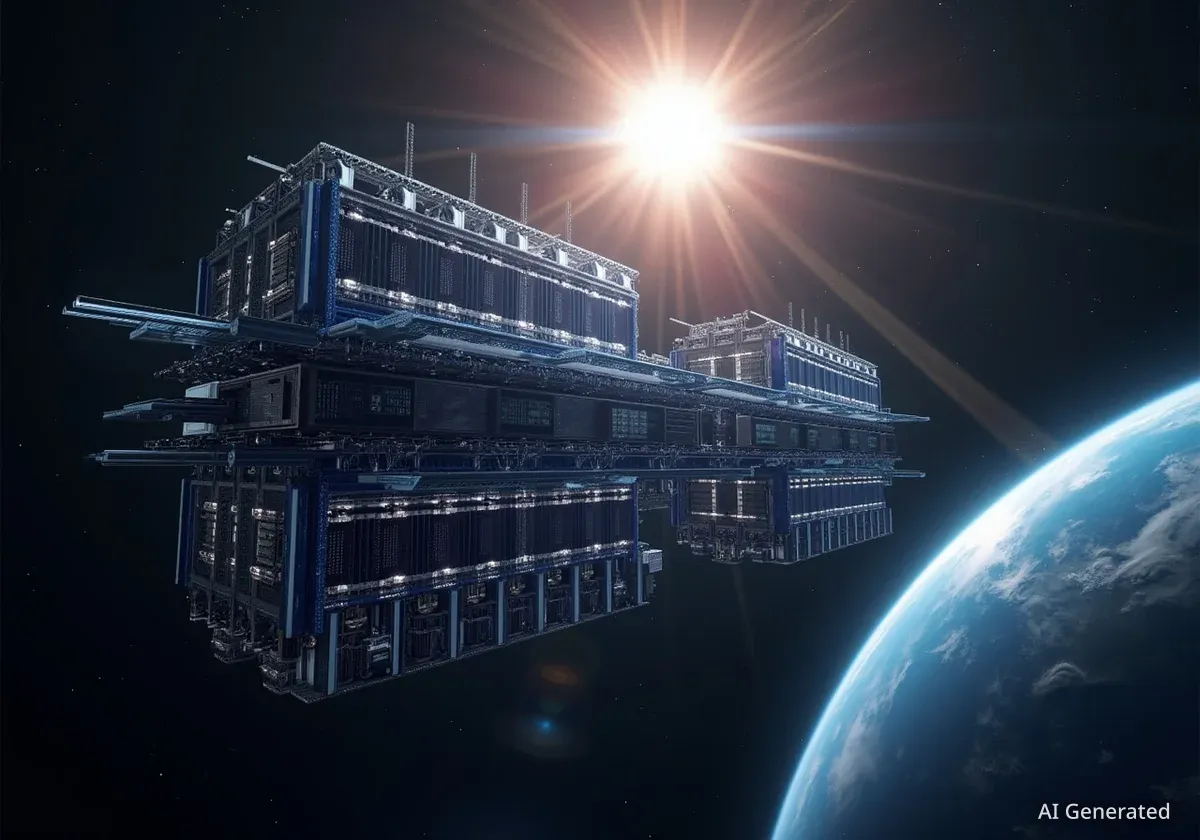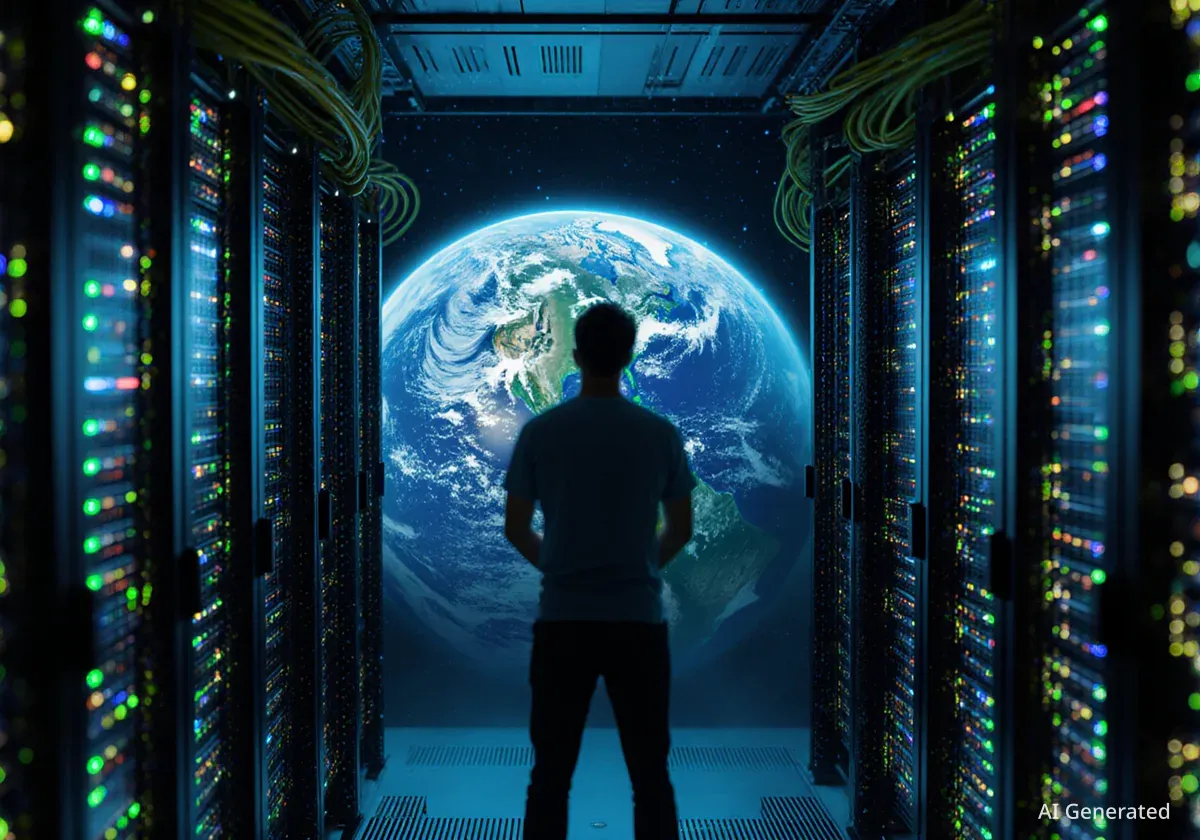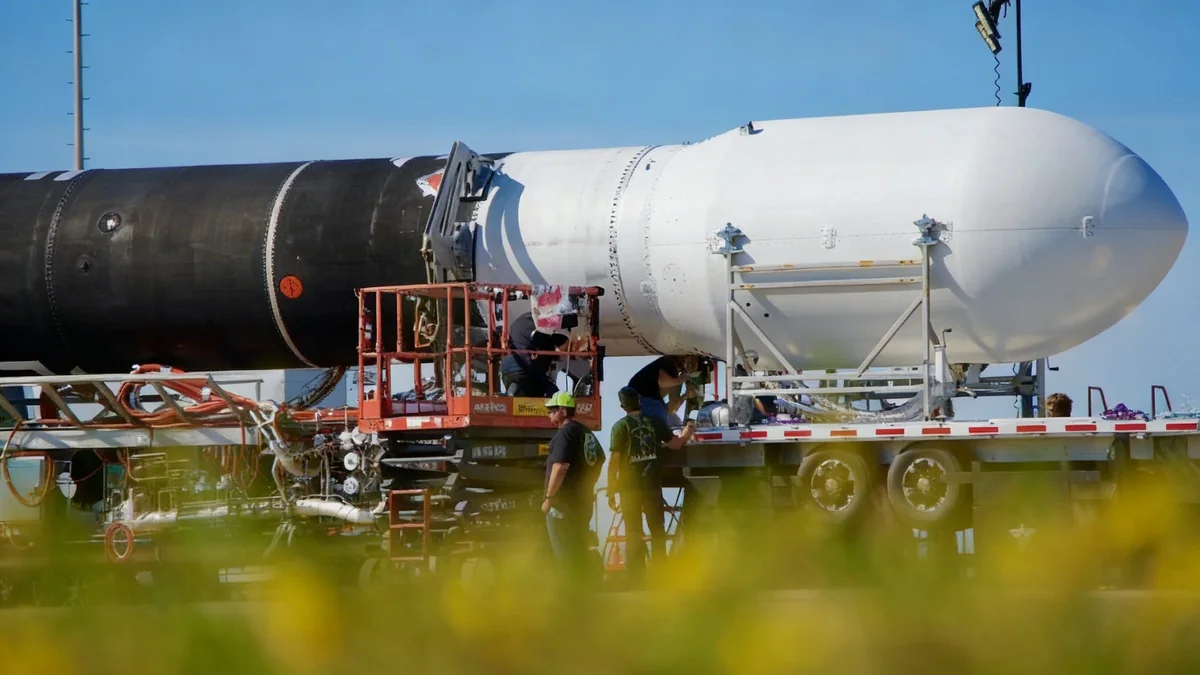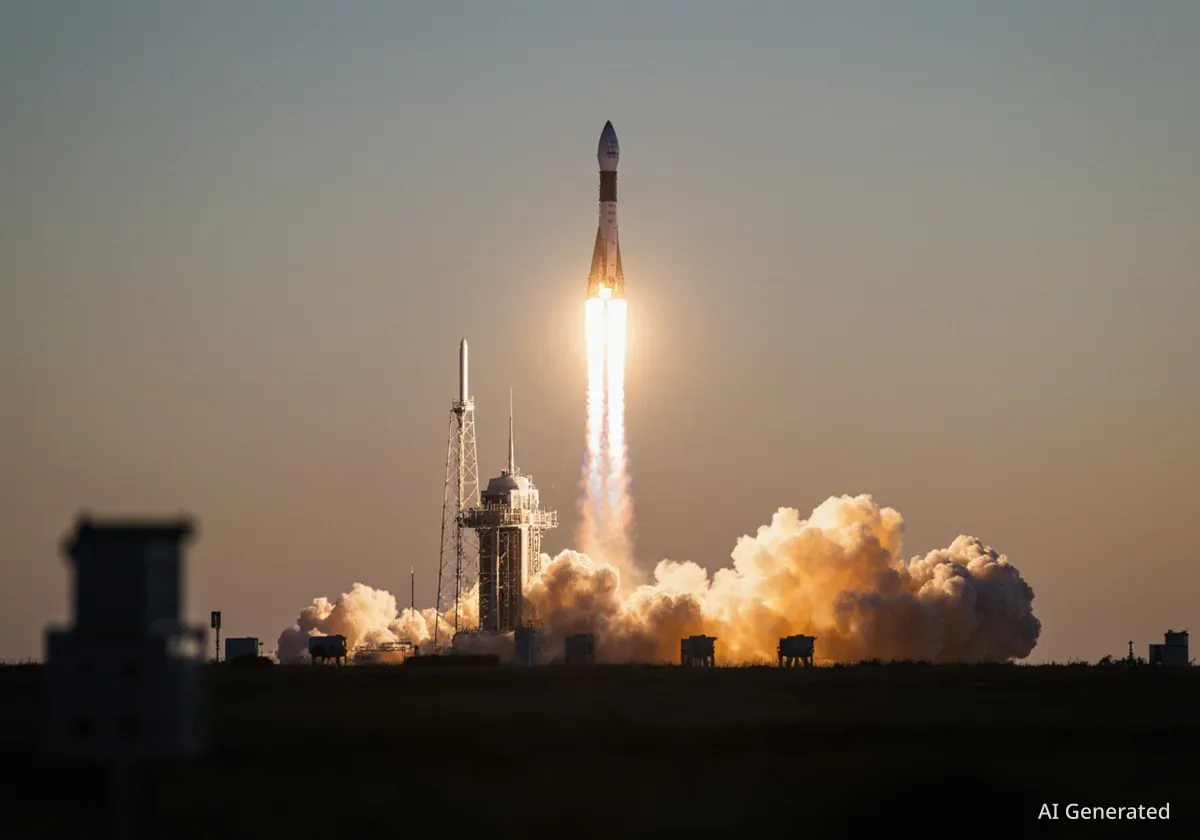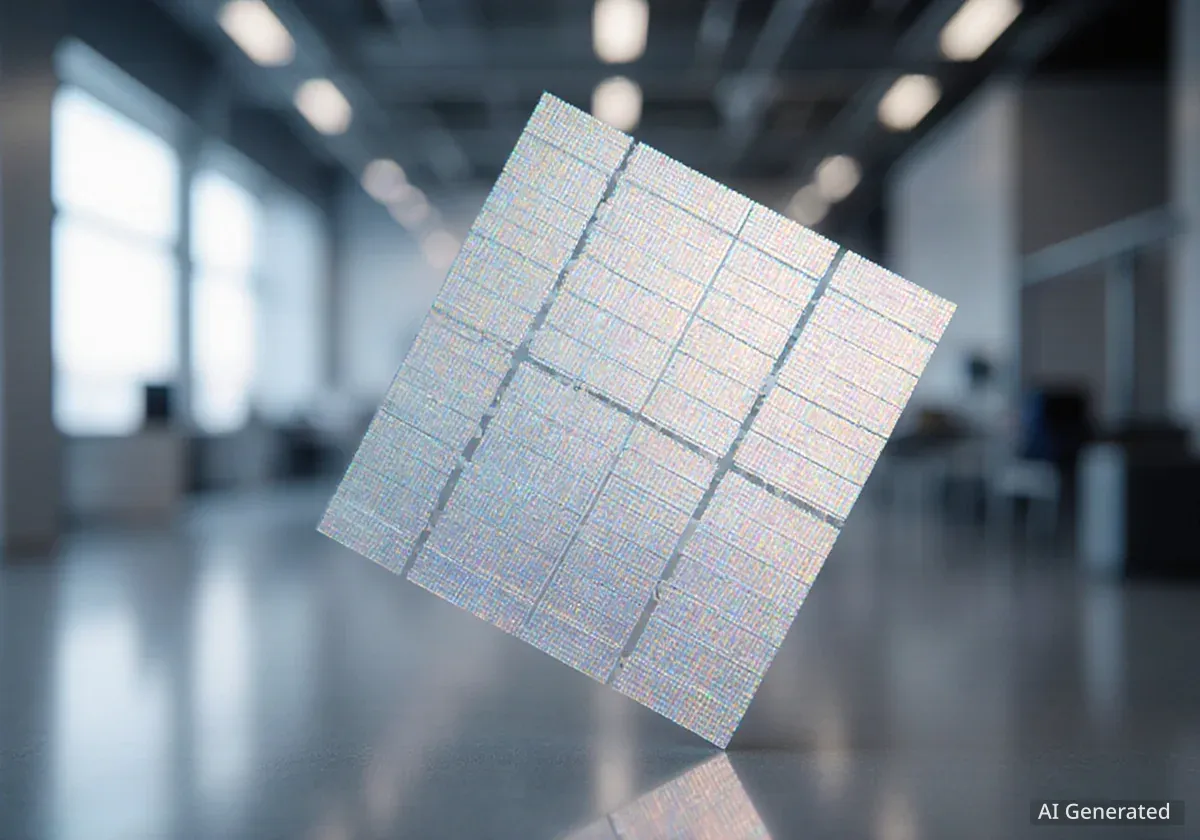Amazon founder Jeff Bezos has projected that gigawatt-scale data centers will be constructed in Earth's orbit within the next 10 to 20 years. Speaking at Italian Tech Week in Turin, he stated that the constant availability of solar power in space would eventually make these facilities more efficient and cost-effective than their terrestrial counterparts.
Bezos also drew parallels between the current advancements in artificial intelligence and the internet boom of the early 2000s, advocating for optimism about the technology's long-term benefits despite the potential for market speculation.
Key Takeaways
- Jeff Bezos forecasts the development of large-scale orbital data centers within the next 10 to 20 years.
- The primary advantage of space-based centers is access to continuous, 24/7 solar energy, free from weather interference.
- Bezos believes these orbital facilities will eventually become more economical than data centers on Earth.
- He compared the current AI surge to the dot-com era, emphasizing that its societal benefits are real and lasting, separate from any potential speculative bubbles.
- Significant challenges for space infrastructure include launch costs, maintenance difficulties, and the risk of launch failures.
The Case for Orbital Computing Infrastructure
During a public discussion with John Elkann, Chairman of Ferrari and Stellantis, Jeff Bezos outlined his vision for moving critical digital infrastructure off-planet. The core of his argument centers on the limitations of Earth-based data centers, which are increasingly straining power grids and water resources.
Bezos explained that the massive server farms required for training advanced artificial intelligence models are ideal candidates for relocation to space. He highlighted the unique environmental advantages of an orbital location.
"These giant training clusters, those will be better built in space, because we have solar power there, 24/7. There are no clouds and no rain, no weather," Bezos stated.
This access to uninterrupted solar energy would solve one of the biggest operational challenges for data centers on Earth: securing a consistent and massive power supply. By placing them in orbit, they could operate at peak efficiency around the clock.
Economic Projections and Future Trends
Bezos confidently predicted a significant economic shift over the next two decades. He believes that the operational efficiencies gained from constant solar power will eventually outweigh the high initial costs of launching and establishing infrastructure in orbit.
"We will be able to beat the cost of terrestrial data centres in space in the next couple of decades," he remarked. This projection suggests a long-term strategy where space becomes the preferred location for energy-intensive industrial and computational activities.
A Broader Shift to Space
According to Bezos, moving data centers into orbit is part of a larger, ongoing trend of utilizing space to enhance life on Earth. He pointed to existing satellite networks as a prime example. "It's already happened with weather and communication satellites," he said. The next logical steps, in his view, involve migrating more complex operations. "The next step is data centres, then other kinds of manufacturing."
This vision aligns with the growing interest among major technology companies in exploring off-world solutions to Earth's resource constraints. As the demand for computing power continues to soar, driven by AI and big data, the concept of orbital infrastructure is moving from science fiction to strategic planning.
Acknowledging the Challenges of Space Operations
While the vision for orbital data centers is ambitious, Bezos and other proponents acknowledge the significant hurdles that must be overcome. Building and operating complex machinery in space presents a unique set of challenges that do not exist on Earth.
Key obstacles include:
- Launch Costs: The expense of launching materials and components into orbit remains a primary barrier, although companies like SpaceX and Blue Origin are working to reduce these costs.
- Maintenance and Upgrades: Performing repairs or upgrading hardware on an orbital facility is far more complex and costly than on the ground, likely requiring robotic systems or specialized astronaut missions.
- Launch Reliability: Every rocket launch carries an inherent risk of failure, which could result in the loss of extremely valuable equipment.
- Space Debris: The growing problem of orbital debris poses a collision risk to any new infrastructure placed in orbit.
Addressing these issues will require significant technological advancements in robotics, reusable launch systems, and in-orbit servicing capabilities before gigawatt-scale data centers become a practical reality.
Terrestrial Data Center Consumption
On Earth, data centers are responsible for an estimated 1-1.5% of global electricity consumption. Their need for constant cooling also places a significant demand on local water supplies, with a medium-sized data center potentially using hundreds of millions of gallons of water per year.
AI: Parallels with the Dot-Com Era
Shifting his focus to artificial intelligence, Bezos compared the current excitement surrounding AI to the dot-com boom of the late 1990s and early 2000s. He acknowledged that periods of intense technological advancement often lead to speculative investment bubbles, but he urged observers to look beyond short-term market volatility.
"We should be extremely optimistic that the societal and beneficial consequences of AI, like we had with internet 25 years ago, are for real and there to stay," he said.
Bezos stressed the importance of separating the technology's fundamental value from financial market speculation. He argued that the transformative potential of AI is a tangible reality, regardless of whether a market bubble forms and bursts.
"It is important to decorrelate the potential bubbles and their bursting consequences that might or might not happen from the actual reality," he advised. He concluded with a positive outlook, predicting that the advantages of artificial intelligence would be widely distributed across all sectors of society. According to Bezos, the benefits are expected "to be broadly diffused and it will go everywhere."

